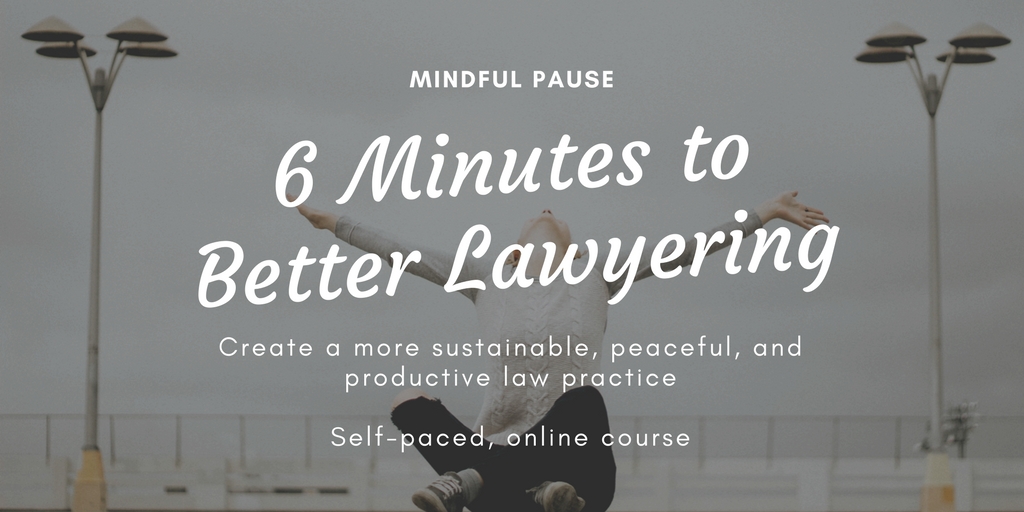One of the most common causes for lawyer stress is money. We trade time for money in 6-minute increments and therefore there’s never enough time. Every single one of us gets 1,440 minutes per day. Time is one of our most precious resources. And we dole it out in 0.1 hours.
This leads to an obscure result where every billable hour is treated exactly the same and the goal is to always bill more.
On top of this, we’re supposed to find time for family, friends, hobbies, exercise, vacation, and meditation.
I remember being a young lawyer — finally having arrived at my dream job. I had the fancy office with a view of the bay. I had a job which allowed me to practice in an area of law I always wanted to practice in, healthy salary, and benefits. Yet, I constantly felt as though I was treading water, trying desperately to stay afloat. To stop from drowning in the endless sea of work.
One afternoon, I got completely lost looking out the window. When I finally snapped out of daydreaming mode, an entire half-hour has passed away. I remember the sense of panic, trying to figure out where that half hour had gone. Realizing I’d need to spend even more time at the office to make-up for the time wasted daydreaming.
A senior associate lawyer I work with shared that she felt as though she’s “dying inside with each hour” she bills.
Another reason for why so many lawyers have a dysfunctional relationship with money is that we are highly competitive. There’s the stress of keeping up with your co-worker, with your partner, with your classmates. If your partner buys a second beach house, and you don’t have one, you feel like a failure. You’re only as good as your last big win, your last big bonus check. You’re only as good as the last big client you bring in. There’s rarely internal measures of success. There’s always someone who’s earning more, getting better clients, working at a better firm, on and on, the cycle of comparison goes.
Finally, there are the mental narratives we all have about money. For example, I grew up believing girls like me don’t get to make a lot of money. I should certainly make some amount of money and I better be “successful,” but make a lot of money? That’s not allowed. I shouldn’t be a showoff. I should be successful, but not too successful. I was also taught you have to work really hard to earn money and without that struggle, if you’re easily able to make money, you’re somehow not making an honest living.
For women (especially women with children), there’s an added complication. For men, it’s acceptable and even encouraged to have a singular focus — to be successful, to earn as much money as possible. However, women face the classic Goldilocks Dilemma. As Andie Kramer, author of Breaking Through Bias writes:
The Goldilocks Dilemma also creates a particularly crushing problem for women with children. On the one hand, it is assumed that mothers need to be available to their children at all times, and, therefore, mothers are viewed as less committed to their careers than women without children or men (without regard to whether they are fathers). If, on the other hand, mothers demonstrate they are fully committed to their careers, they are viewed as bad mothers.
I often work with coaching clients — unhappy lawyers who feel completely stuck. They can’t quit because they can’t get rid of the golden handcuffs. There’s of course, the financial reality that there are bills to pay (and likely a very hefty student loan payment), mortgages, kid’s braces to pay for.
But what they’re most unwilling to let go of is the identity that often accompanies having the title and the salary of a lawyer.
No other profession identifies so strongly — who you are with what you do as lawyers. Somehow, letting go of the identity as a lawyer feels like failing. Even considering Option B feels frightening.
Spending time working on your money narrative, the story you hold about how much you earn (or how little), how success is tied to the amount reflected on the paycheck — this is the journey to maturing as a human being. It’s not an easy journey but absolutely necessary for making any big shifts in life.
Want to cultivate a more sustainable, peaceful and productive law practice? Join me for Mindful Pause.


